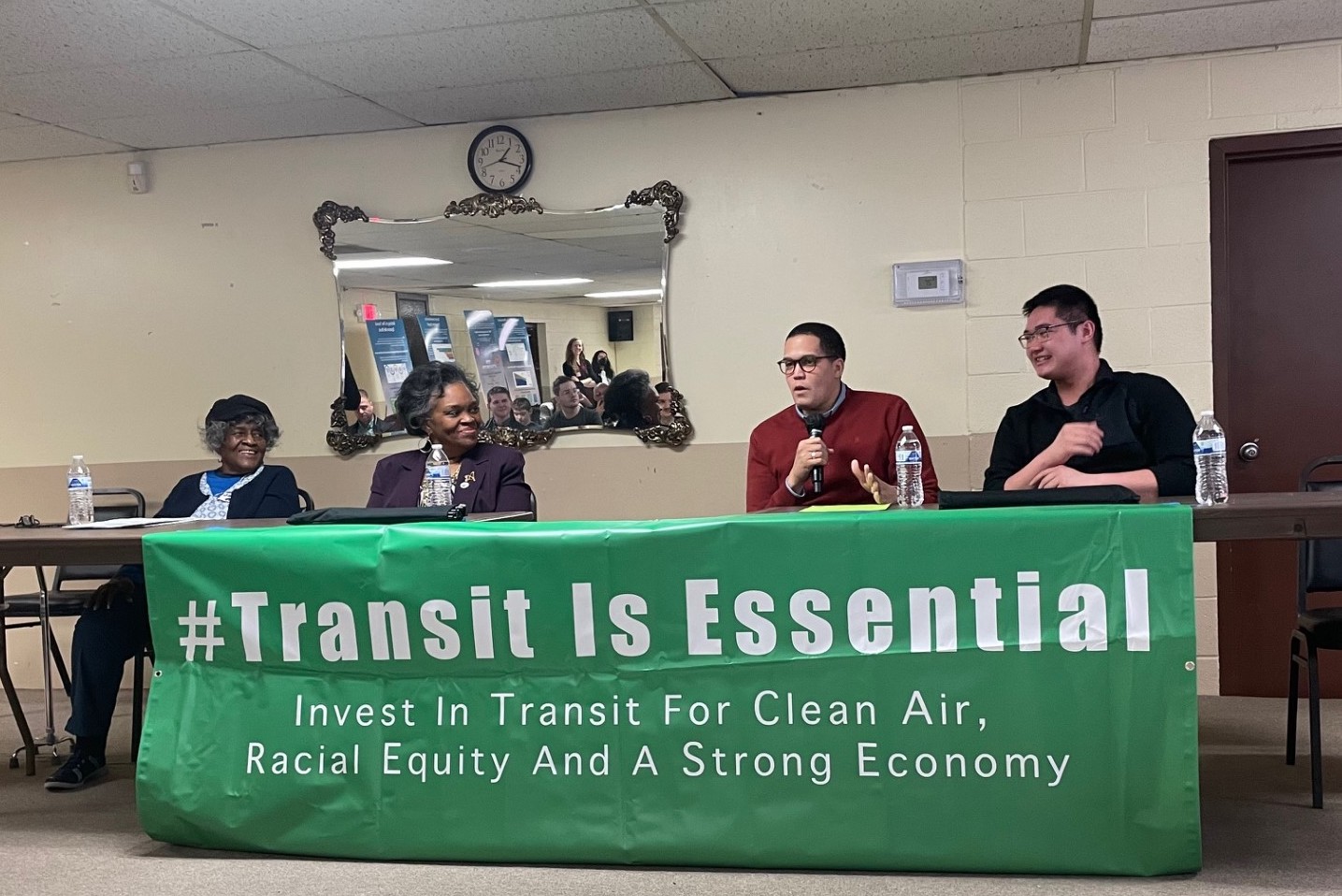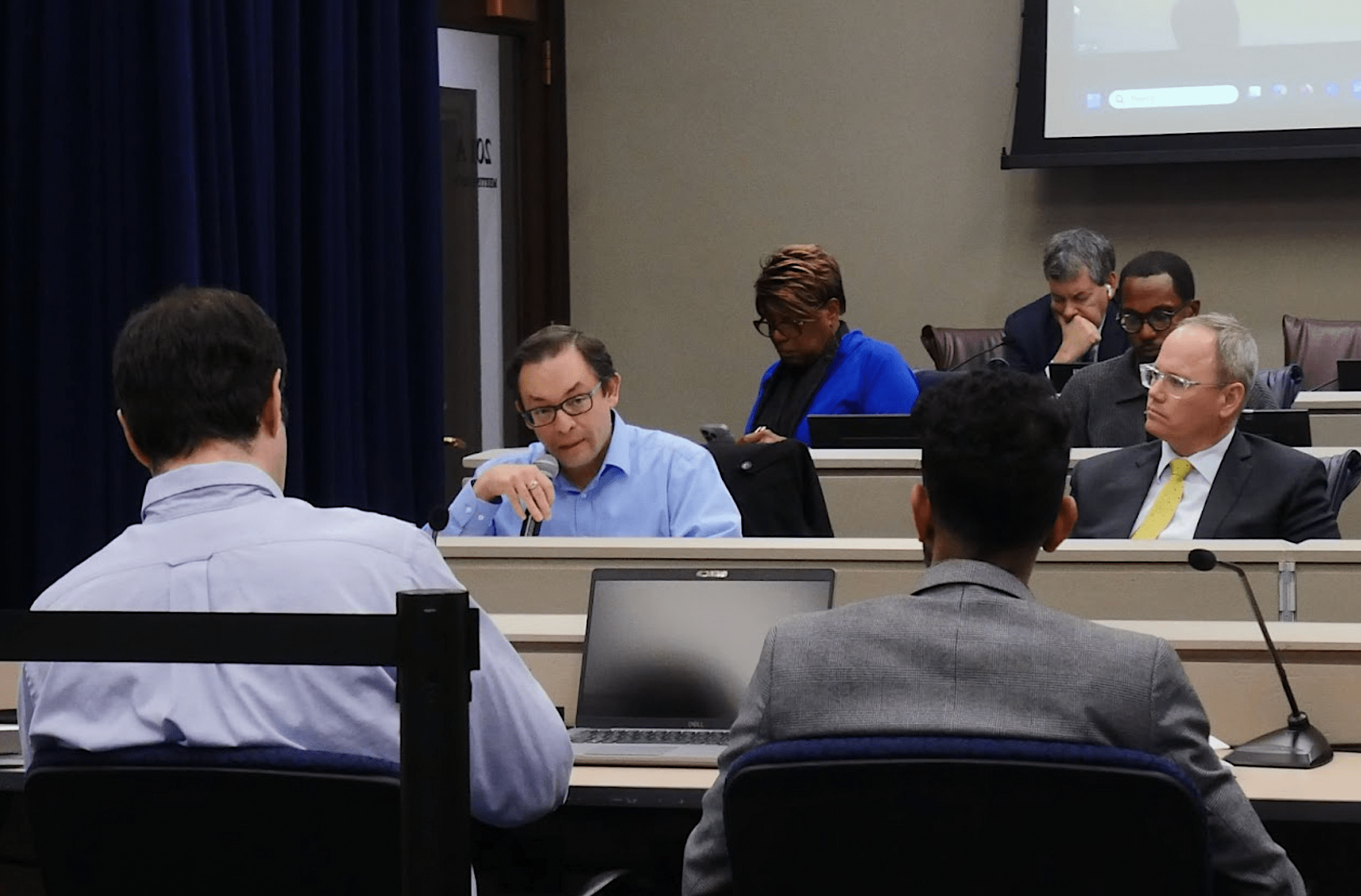
On Saturday a panel including a longtime sustainable transportation advocate, community leaders, and an elected official heard from activists and everyday citizens about the need for a stronger Chicagoland bus and train network network.
Organized by the Active Transportation Alliance and called the Transit is Essential Town Hall, the gathering was held at Mount Carmel Baptist Church, 2976 S. Wabash Ave. in the Douglas community area, just east of the Green Line. Other sponsoring organizations included Center for Neighborhood Technology, Access Living, Equiticity, LVEJO, and Transportation Equity Network. CNT's CEO Nina Idemudia emceed.
At the town hall there were multiple fliers about future transit-related events near the sign-in form. There was also a board with a map of Chicago on it, and people were asked to leave suggestions for public transportation improvements.
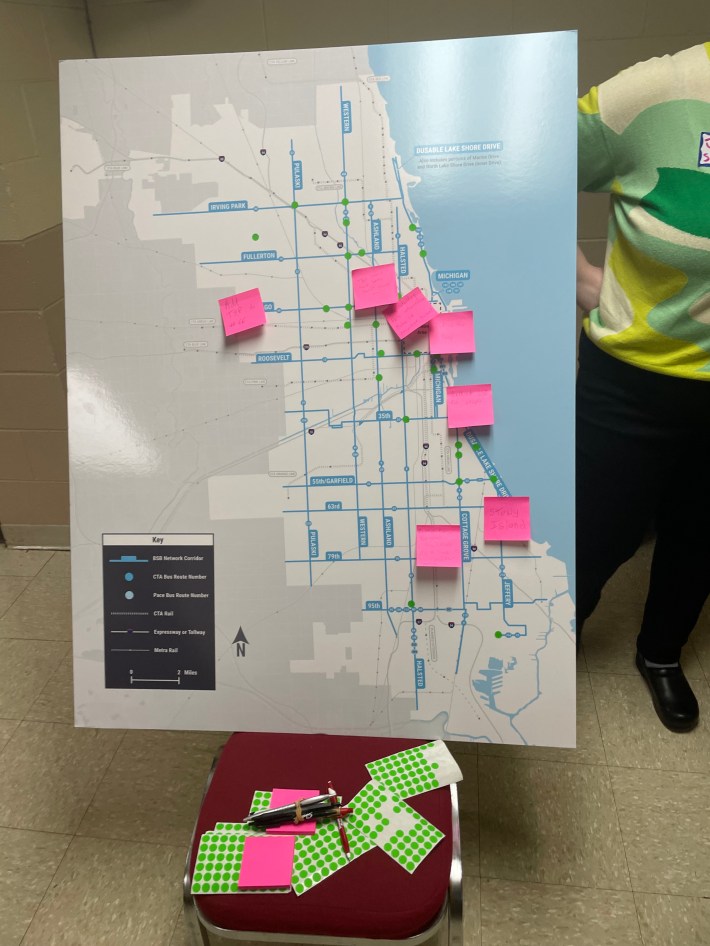
The panel included Greater Roseland Chamber of Commerce Deputy Director Andrea Reed, Illinois State Senator Robert Peters (D-13th), and Lane Tech senior Standley Wu, a member of the Coalition for a Better Chinese American Community. Also on the panel was CNT Vice President of Government Affairs Jacky Grimshaw, a veteran advocate for public transportation who was a last-minute replacement for outspoken transit booster State Rep. Kam Buckner (D-26th). (She also happens to be my grandmother.)
"We have to be intentional about communication with [Chicago Mayor Brandon Johnson's] office" when pushing for better CTA service," Ms. Grimshaw said. "Not so much the white folks in this room, because this Mayor's Office thinks that all the complaints about CTA is North Side white folks not being satisfied. So you people of color, you have a bigger responsibility in a sense, to make sure that the mayor's office knows that we are suffering the most, right. South and West Side, where the people of color live, are the communities that are suffering and that lack the equity in the transit system. So you know, we don't need the white folks to stop, but we definitely need people of color to step up and make the situation very, very clear to the mayor's office."
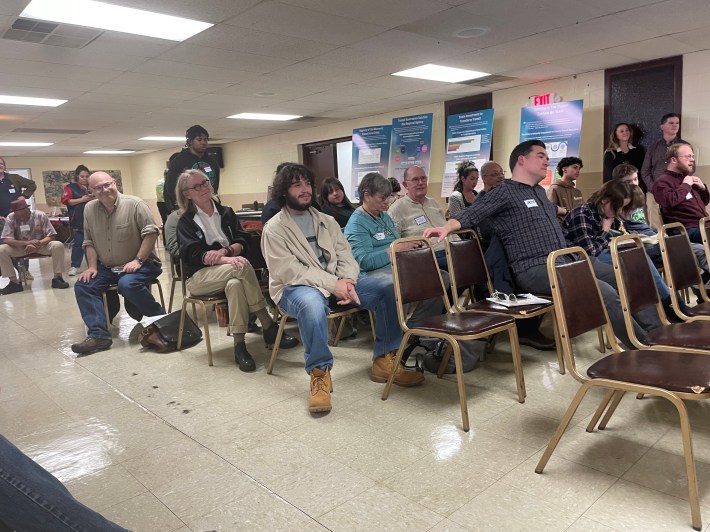
After the panelists had finished speaking, Commuters Take Action cofounder Fabio Göttlicher was among the attendees that commented. "I'm an immigrant to this country," he noted. "I come from the Czech Republic, and I grew up riding transit routes ever since I was this little, going to school every single day on a bus, and it's really great. Moving to Chicago I wanted to keep doing that. I have a friend back in the Czech Republic who actually works professionally in transit... and about two years ago we were talking. I was saying ‘Oh no, the CTA has gotten worse. There’s all these "ghost trains" [runs that appear on the schedule but never materialize] and there are long wait times.' And he's like, 'What are you serious? The CTA has scheduled trains that are not running?' It was unbelievable for him because in his transit agency, if a train is on the schedule, it’s going to run. They're going to do what they can to hire the people and treat them well so that they can run those buses and trains. And if they can’t run those buses and trains, they’re going to let people know and adjust the schedules.”
Another person who got up to speak was Vanjo Cortes, the workforce manager at Equiticity, a mobility justice nonprofit. While the event was focused on transit, he pointed out that he was wearing a helmet, since he biked to the town hall, and brought up some cycling issues: the need for more protected bike lanes and bike parking racks.

One attendee expressed disappointment in Mayor Johnson, arguing that while Johnson seemed to understand sustainable transportation issues before he took office, he's been ignoring them ever since.
State Senator Peters responded to that statement with the caveat that he’s a supporter of the Johnson administration. But he added that transit advocates should be canvassing on transportation issues door-to-door, since people shouldn’t expect a politician to do anything progressive without the organized power necessary to do it.
"Access to life in the city should not require you to spend six to $10,000 on an automobile annually,” said attendee Karen Kendrick Hanes, who said she lives out of town, but has experienced Chicago transit as a tourist. "Every city [transit] system should have the standards to be safe enough that you would allow your 11-year-old daughter or granddaughter to ride alone. Metra is fun to take, but it's overfunded to take care of white collar workers with eight-to-six jobs. You need it to be stronger for the reverse commute, to get people out to where the jobs are in the suburbs. So you need to do more with second-shift than reverse commuter [service]."
She concluded that more work is needed to get residents on board with the need to create a better transit system. "It's gonna take a million conversations, at least, to get this done," she said. "You guys can start it and I'm glad for that... And each of us is only one accident, one illness, one flat tire, or one suspended license away from being transit dependent."
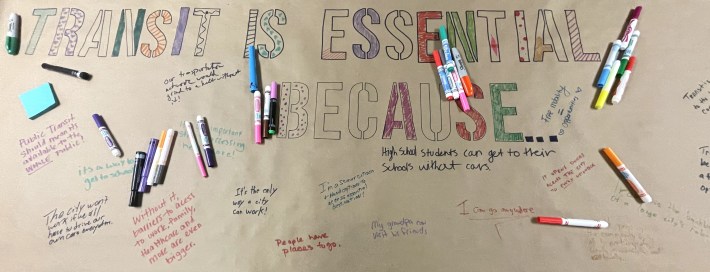
"This [event was] unbelievable," Senator Peters told Streetsblog after the town hall ended. "It's a diverse crowd. I’m glad it’s on the South Side. I always love a good organized meeting in a church basement. It's almost cliche, but it's beautiful every time. What I almost appreciated the most about this event was that the Green Line was buzzing by during the middle. I thought that was perfect."

Did you appreciate this post? Please consider making a tax-deductible donation to help Streetsblog Chicago keep publishing through 2025. Thank you.
